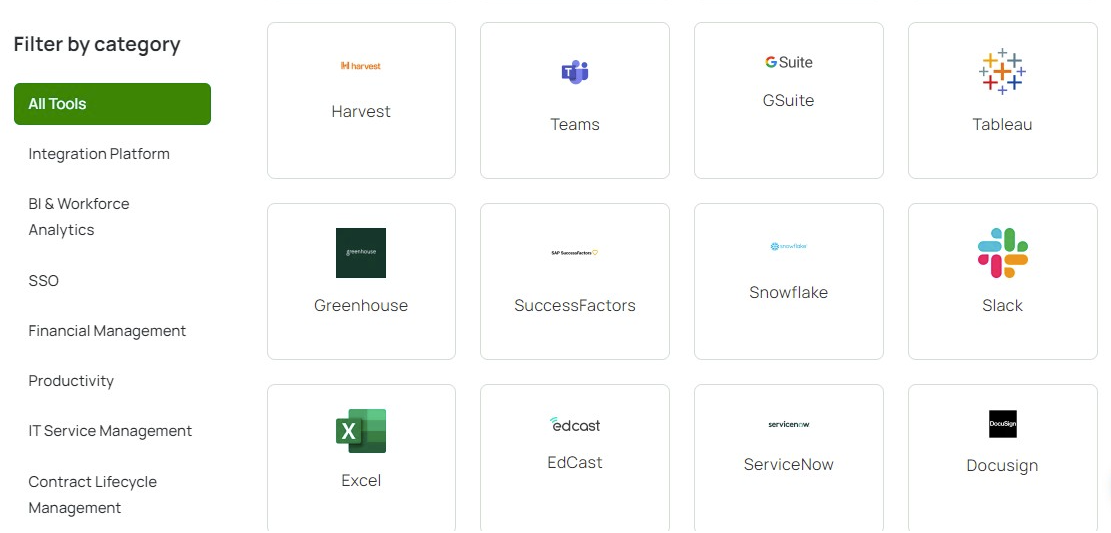[REVEALED]: 7 Questions You Must Ask In 2026 Before Investing in a VMS

Is your business dealing with a lot of contingent workers spread across diverse locations, and you are in search of an all-in-one solution to manage all your vendors?
The good news is that there are many Vendor Management solutions in the market. These solutions come with many different features.
The issue lies in business owners investing in Vendor Management solutions without performing adequate market research. As a result, despite having various features, these solutions often fall short of addressing the specific requirements of individual businesses.
So, in today’s article, we discuss 7 questions that you must ask before investing in Vendor Management Solutions.
Let’s get started.
#1. How Does the VMS Provider Tackle the Migration of Your Current Program Data?
Often, businesses make investments in robust VMS software boasting powerful features, only to encounter limitations in terms of data migration.
As a result, businesses may encounter loss of existing data. So, they need to start from scratch, which is very frustrating and equally time-consuming.
That’s why it is of utmost importance to select a solution that facilitates the smooth transition of your old data without hampering the day-to-day business activities.
The world’s best VMS solution providers like SimplifyVMS facilitate seamless data migration and ensure seamless productivity with the help of various pre-built integrations for Productivity, Financial Management, ITSM, Productivity, Database, and more.

So, you should check migration capabilities before anything else when shortlisting VMS solutions.
#2. Will Training Be Provided?
No matter how intuitive the UI/UX of the platform seemed during the demo, you will still be needing adequate training for seamless navigation.
So, it is very important to understand the degree of training that will be provided to you and your team by the solution provider.
You should understand whether there is an additional cost for training, or is it included in the package. Furthermore, it’s essential to identify the scope of training recipients – will it be limited to the core team? Or will it extend to the procurement team, hiring managers, and administrators who are everyday end-users?

Additionally, you should also inquire about the delivery method of training and whether supplementary resources are available to help learners refresh their knowledge.
Most of the time, VMS providers will also provide tons of training videos to help users to easily navigate across the platform. Furthermore, there are 24/7, AI-powered live chats integrated in the platform to solve common challenges.
#3. Does the VMS Fulfil Your Comprehensive Needs?
Determine whether the platform meets your needs as a priority. To address this crucial consideration, it’s essential to understand the capabilities of a Vendor Management System and establish a feature wishlist based on your requirements.

Here’s an illustrative wishlist:
- Vendor Performance Tracking: Reports and dashboards to track vendor performance.
- Invoicing and Budgeting: Capability to generate consolidated invoices.
- Talent Onboarding: Resume parsing, screening, to onboarding – a one-stop contingent hiring process.
- Procurement Tracking: Monitoring and managing procurement activities.
- Credentialing: Real-time visibility into compliance and compliance checklist for worker onboarding.
- Invoicing: Automated invoice generation based on approved timesheets and expenses.
#4. What Type of Support Model Do I Get?
Understanding the support model employed by the provider is essential for both software assistance and extended workforce programs.
When it comes to software support, it’s imperative to inquire about operating hours. Ensuring that their operating hours align with your schedule and whether team members in different countries have access to support.
Additionally, you need to understand the various support formats such as live chats, knowledge base, customer success manager, on-site support, and more.
Furthermore, clarifying the scope of the Service Level Agreement (SLA) including the promised time for issue resolution is very important.
#5. Is the System Customizable to Your Requirements, and are There Any Associated Costs?
While some organizations may find satisfaction with a Vendor Management System (VMS) utilizing default settings, many prefer the ability to tailor the tool to align better with their organizational needs.
Therefore, it is crucial to explore the configuration options within the VMS and assess whether your business is likely to require them. This involves considering both the standard configuration options within the tool and the potential for collaborative development with the provider, through a VMS that seamlessly addresses needs without extensive intervention is preferred.
Common areas where organizations often seek customization include approval chains, vendor-specific distribution, tiering, user management, data access, and more.
For instance, a business might prefer budget-based approvals rather than an approver chain, or it may need the flexibility to designate a vendor as top-tier for one skill type and bottom-tier for another.
Evaluating how your business operates and whether the VMS can accommodate these needs should be taken into thorough consideration when making an investment decision.
#6. Is the Security of My Data Guaranteed?
The security of contingent worker data should align with the stringent privacy and security standards applicable to regular employees.
It is imperative that the Vendor Management System (VMS) you choose exhibits robust security measures.
Verify that any cloud-based providers have attained industry-standard security certifications. These certifications indicate thorough audits against crucial criteria encompassing privacy, security, availability, confidentiality, and process integrity.
Ensuring these security measures are in place is fundamental to safeguarding the confidentiality and privacy of your data.
#7. Will Features and Modules Get Auto Updated?
The modern Vendor Management Systems are frequently cloud-based, meaning the software is hosted remotely on the provider’s services, and users access it through a web browser.
With this accessibility, users can access the system from any machine, it also ensures that when new features and modules are introduced, all system owners receive updates promptly.
A Few Words to End With
Investing in a Vendor Management System (VMS) demands a thoughtful approach, and asking the right questions is pivotal to making an informed decision.
The seven questions discussed in this post shed light on critical aspects of a VMS solution. By using these as checklists organizations can select the solution that perfectly aligns to their business requirements.
We hope you really enjoyed reading this post, if that's the case you will surely love to check the following resources:



-1.jpg?width=352&name=image%20(8)-1.jpg)
Your comments